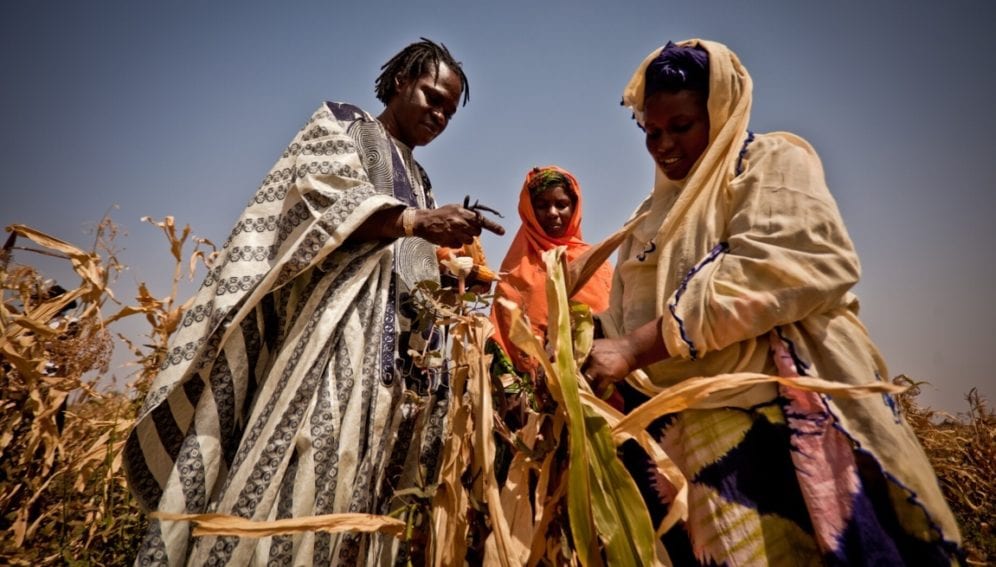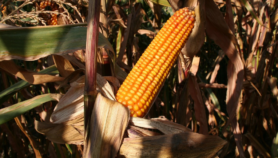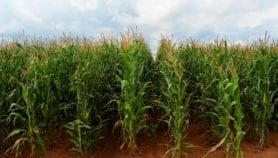By: Dorcas Odhiambo
Send to a friend
The details you provide on this page will not be used to send unsolicited email, and will not be sold to a 3rd party. See privacy policy.
[NAIROBI] Weather-based index insurance can work for millions of smallholder farmers in Africa and the rest of the developing world on a large scale, a report says.
The report by CGIAR’s Research Program on Climate Change, Agriculture and Food Security (CCAFS) and the International Research Institute for Climate and Society (IRI) at the US-based Columbia University was launched last month (26 January) and discusses cases from Ethiopia, Kenya, Rwanda, Senegal, Tanzania, India and Mongolia.
Researchers examined current operational insurance programmes that have been expanded to cover and transform the livelihoods of thousands or millions of farmers.
Helen Greatrex, lead author and a postdoctoral researcher at IRI, explains that index insurance can help populations whose livelihoods depend on the weather — such as smallholder farmers and pastoralists — to manage changing climate risks.
Source: CGIAR
Farmers, she says, may worry about investing in their farms because if high-yielding seeds are more costly and sensitive to rainfall, their losses may be even higher in a bad year than if they used regular seeds.
“Furthermore, if banks think that farmers are at high risk, they may not be willing to [give them] loans in the first place,” Greatrex explains.
She adds that conventional indemnity insurance requires costly on-the-ground inspection recovered through higher insurance premiums, making it unaffordable to many farmers. Besides, payouts do not create incentives for hard work to save a crop in a bad year.
“Index insurance works slightly differently,” Greatrex says. “Payouts are triggered not by observed damages like failed crops, but rather when an index such as wind speed or an amount of rain during a certain window of time, or the average yield over the entire region falls above or below a prespecified threshold.”
But she concedes there are limitations. For example, most accurate calculation of payouts based on measurements of rainfall, wind, or other weather factors will have some level of disagreement with actual losses on a farm.
Until recently, Greatrex states, people doubted that index insurance could benefit more smallholders.
But in Kenya, Rwanda and Tanzania, Agricultural and Climate Risk Enterprise is insuring nearly 200,000 farmers who also get other services such as improved seed, according to the report. In India, there are over 13 million farmers covered and linked to agricultural loans with strong government support.
William Ndegwa, Kitui County director at the Kenya Meteorological Department, tells SciDev.Net that weather-based index insurance is today considered one of the tenets of climate finance in ‘climate smart agriculture’.
“Weather-based index insurance has been shown to help reduce climate-related agricultural production risks with appropriate insurance strategies,” Ndegwa says. “It provides schemes with low transaction costs, [and] encourage smallholders to increase production since inputs are insured against failure.”
Ndegwa explains that once farmers are insured they would get the payout irrespective of whether their neighbours do well. It is not based on the entire population of farmers, with only those who feel vulnerable buying it, and thus eliminating moral hazard of incentives for a farmer to neglect a crop in order to get an insurance payout.
Ndegwa adds that the availability and quality of weather data — including historical data essential for construction of weather index — and real-time rainfall measurements to determine payouts are crucial for implementing weather-based index insurance programmes for farmers.
Link to report
This article has been produced by SciDev.Net's Sub-Saharan Africa desk.














